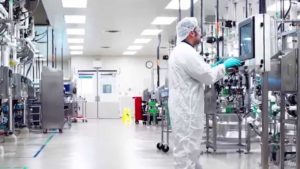Skip to content

Beverage production is among the oldest, though quantitatively most significant, applications of biotechnology methods, based on the use of microorganisms and enzymes. Manufacturing processes employed in beverage production, originally typically empirical, have become a sector of growing economic importance in the food industry. Pasteur’s work represented the starting point for technological evolution in this field, and over the last hundred years progress in scientifically based research has been intense. This scientific and technological evolution is the direct result of the encounter between various disciplines (chemistry, biology, engineering, etc.). Beverage production now exploits all the various features of first and second-generation biotechnology: screening and selective improvement of microorganisms; their mutations; their use in genetic engineering methods; fermentation control; control of enzymatic processes, including industrial plants; use of soluble enzymes and immobilized enzyme reactors; development of waste treatment processes and so on. Research developments involving the use of biotechnology for the purpose of improving yields, solving quality-related problems and stimulating innovation are of particular and growing interest as far as production is concerned. Indeed, quality is the final result of the regulation of microbiological and enzymatic processes, and innovation is a consequence of improved knowledge of useful fermentations and the availability of new ingredients. IESG Engineering’s projects are working to led to the contributions to this industry as a clear evidence of the growing need for adequate information about scientific and technological progress.
